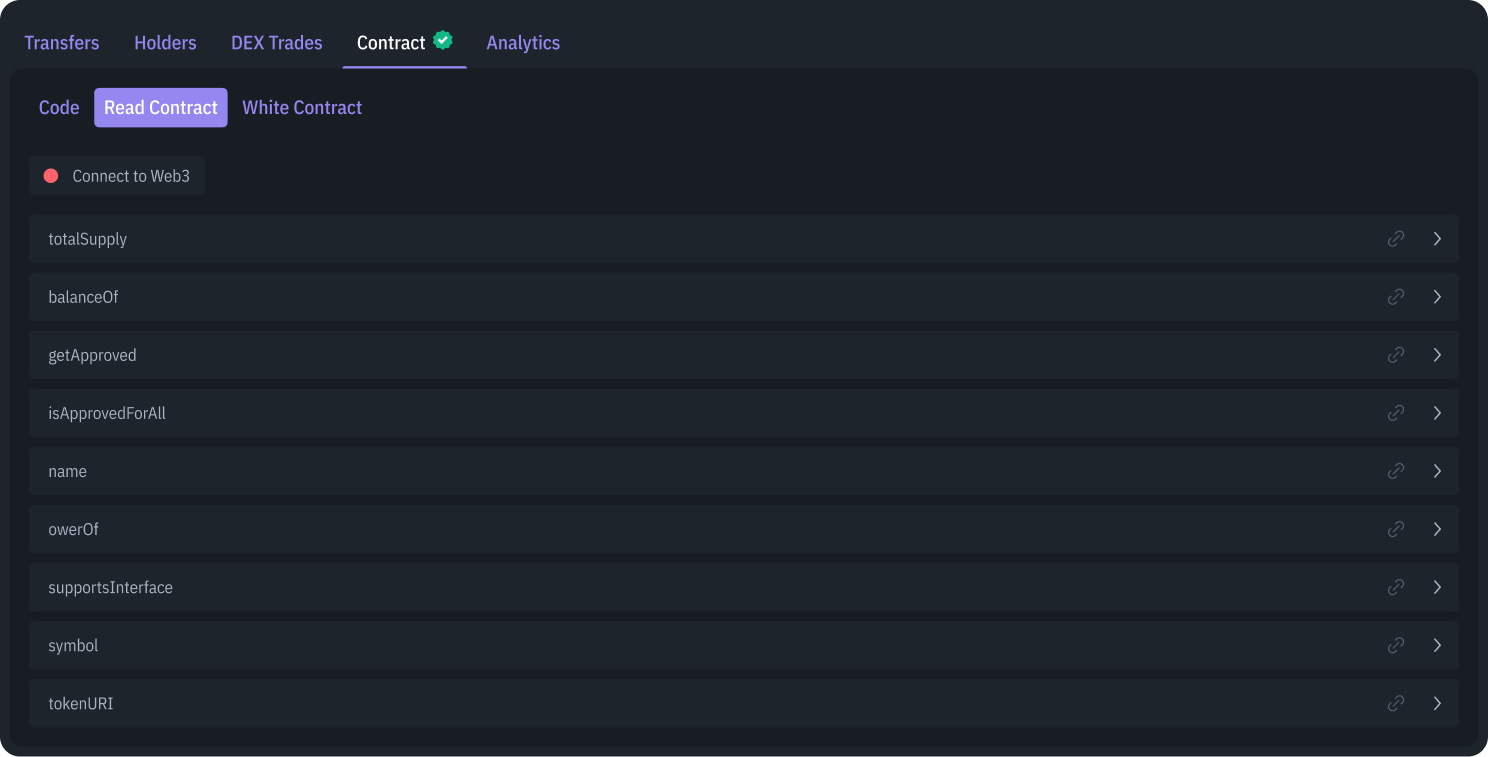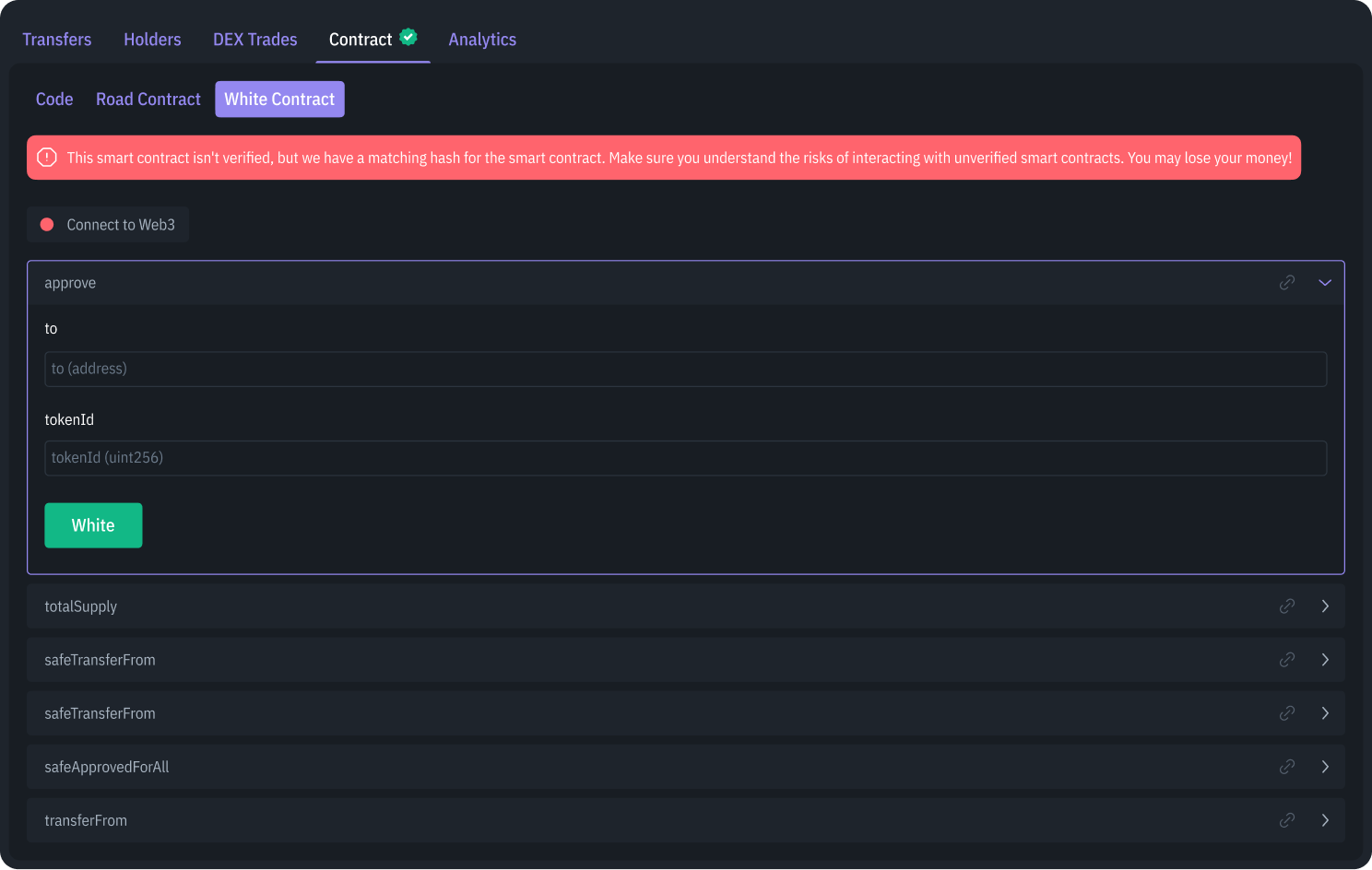In the world of blockchain technology, block explorers play a crucial role in providing users with insights into transactions, smart contracts, and on-chain data.
During the development of our indexation pipeline for collecting real-time on-chain data for the DexGuru Trading Terminal, we realized the immense value of having comprehensive information about asset movements and a scalable infrastructure to support it. This realization led us to envision a natural extension of our product line – a block explorer as a service. Leveraging our existing infrastructure, which enables us to efficiently handle data collection at scale, we recognized the potential of offering a block explorer that seamlessly integrates with our existing solutions. By expanding our product offerings, we aim to provide users with an enhanced experience and a holistic suite of tools for navigating and understanding blockchain data.
Etherscan has long been the go-to block explorer for Ethereum, but now there is a new player in town: DexGuru. DexGuru Block Explorer offers an affordable alternative to Etherscan, catering to EVM-compatible chains and providing a wide range of features and integration models.
User-Friendly Interface and Essential Features
DexGuru Block Explorer boasts a user interface reminiscent of the classic Etherscan, ensuring familiarity for Ethereum users. It brings together the most frequently used features, such as token balances and portfolio views, enabling users to track their assets effortlessly. As a design-driven company, we always strive to deliver visually stunning products. This block explorer offers both day and night themes and a mobile-friendly layout. Users can enjoy the flexibility of choosing between light and dark themes based on their preferences, while the mobile-friendly design ensures a seamless and optimized browsing experience on various mobile devices.

ABI Execution Interface
One of the standout features of DexGuru is its ABI Execution Interface, offering a seamless connection between web3 wallets and smart contract methods. By extracting smart contract information from the reliable sources of Smart Contract Sanctuary and Sourcify, DexGuru allows users to read/write smart contract data even when the dApp frontend isn’t available. This empowers developers and users alike to interact directly with smart contracts, opening up a world of possibilities. For developers, we provide a native UI for Sourcify validation, enhancing the trust and transparency of smart contracts.


Visualization and Analytics
DexGuru Block Explorer goes beyond basic functionalities and provides powerful visualization tools for internal transactions and traces. It allows users to explore the flow of funds and interactions within the blockchain, gaining valuable insights into the network’s activity. Additionally, DexGuru offers account balances and token prices API for developers, enabling them to build robust applications on top of the supported chains.

Block Explorer as a service for App Chains/L3 Providers
App chains, also known as application-specific chains or layer-3 chains, are blockchain networks built on top of existing blockchain platforms like Ethereum. These chains are designed to provide specific functionalities or cater to specific use cases, offering a more scalable and efficient environment for decentralized applications (DApps) and smart contracts.
App chains are typically implemented to address the limitations of the underlying blockchain network, such as high transaction fees, limited scalability, and slower transaction confirmation times. By creating a separate chain, developers can optimize performance and tailor the blockchain to meet the specific requirements of their applications.
From the very beginning, we recognized the importance of supporting App Chains as a key feature. We are excited to announce that we are launching DexGuru Block Explorer for Arbitrum Orbit, with plans to expand to more L3 Providers in the future. This development showcases our commitment to providing comprehensive block exploration services tailored to the needs of various Layer-3 solutions.

Cost Breakdown
At DexGuru, transparency is a fundamental aspect of our values, and we prioritize providing clear and concise information about our pricing and integration costs. We firmly believe in open communication, ensuring that our clients understand our pricing structure comprehensively.
To deploy our Block Explorer on an EVM-compatible chain, we require a one-time setup fee of $100,000. This initial investment covers the necessary setup processes, ensuring a smooth and efficient integration. In addition, there is an annual maintenance cost of $50,000, which encompasses ongoing support and infrastructure cost to guarantee a seamless and reliable block exploration experience for our clients.
L3-service providers may have different integration models based on how instances are operated and how end-users establish new blockchains. Additionally, The Appchain/L3 provider has the flexibility to choose between passing on costs to the end-users or adding an additional fee on top of the service. This approach allows providers to customize and align their pricing structure with their business strategies.
Competitors
- Etherscan, the leading block explorer for EVM-compatible chains, has gained immense popularity. However, it is a closed-source platform. Deploying and maintaining Etherscan for your own chain can be quite costly. While exact pricing details are not publicly disclosed, industry sources suggest that the expenses start at $1 million per year.
- Blockscout is an open-source block explorer specifically developed for Ethereum and EVM-compatible chains. While it may not be as widely known as some other block explorers, Blockscout offers a range of comprehensive tools and features that allow users to explore, analyze, and interact with blockchain data effectively. One of the advantages of Blockscout is its flexibility, as you have the option to run your own open-source instances or utilize their managed solution, depending on your specific needs and preferences.
- Otterscan, created in 2021 by William Mitsuda, is a blockchain explorer specifically tailored for Ethereum. It is built on top of Erigon, a robust Ethereum client known for its reliability and performance. Otterscan offers users the flexibility to run the explorer locally on their laptops alongside an archive node powered by Erigon. This setup proves to be particularly beneficial for chains that are supported by the Erigon client, which currently includes Ethereum and Polygon. For projects utilizing Erigon, Otterscan presents an intriguing alternative as a block explorer with its unique capabilities and features.
Conclusion
DexGuru Block Explorer as a Service presents a compelling alternative to Etherscan, catering to EVM-compatible chains. With its user-friendly interface, smart contract verification, ABI Execution Interface, and visualization tools, DexGuru empowers developers and users to explore and interact with blockchain data effortlessly. Our integration models are designed to accommodate the diverse needs of both independent chains and L3 service providers. These flexible integration options ensure that regardless of your specific requirements, we have a solution that can seamlessly adapt to your unique circumstances.
Give it a try 👇
We invite you to explore our deployed block explorers and share your valuable feedback with us on our Discord server. Your input is highly appreciated as it helps us enhance and refine our explorers to better meet the needs of our users. We look forward to hearing your thoughts and insights!
- Canto Block Explorer
- Fantom Block Explorer
- Arbitrum One Block Explorer
- Arbitrum Nova Block Explorer
- Optimism Block Explorer




